It is that time of year again when with the arrival of spring, I sort out my office. As I am getting short of space in the bookcase I decided this year to pack away many books to which I no longer refer and older back numbers of food magazines, some of which are from the late 70’s. Of course I couldn’t just wrap and box them without having a quick look and being amazed yet again how things have changed.
Cooking in the late 60’s and 70’s was much less exotic than today; apart from salt and pepper, a few packets of dried herbs, cinnamon, nutmeg, ginger and nearer Christmas, a few cloves perhaps and you were set. Oh! And I mustn’t forget curry powder, “hot” or “mild” made by companies like Empire or Vencattachellum.
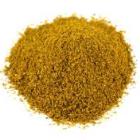 I looked at curry recipes in a number of the old magazines and books and found them all disappointingly similar and similarly disappointing. The meat was usually mince although there were a couple of recipes for mutton or chicken. This was fried in dripping with onions and in only one case, garlic, half a clove between eight people. Flour and curry powder were mixed (3:1) and stirred into the onions to which tomato puree and chicken stock were then added. Gravy browning was used if a darker curry was required (or sometimes to dull that bright yellow colour).
I looked at curry recipes in a number of the old magazines and books and found them all disappointingly similar and similarly disappointing. The meat was usually mince although there were a couple of recipes for mutton or chicken. This was fried in dripping with onions and in only one case, garlic, half a clove between eight people. Flour and curry powder were mixed (3:1) and stirred into the onions to which tomato puree and chicken stock were then added. Gravy browning was used if a darker curry was required (or sometimes to dull that bright yellow colour).
This mix was brought to a boil and allowed to thicken and into it, in every recipe I read, were then stirred raisins, desiccated coconut and chopped apple. In the recipe using mutton, this mix was then allowed to simmer for 2-3 hours. All recipes advocated serving the dish with boiled rice and chutney. Should one require just a curry sauce, for serving over eggs or sausages perhaps, the recipe was simply to be made without the meat. For fish curry, a squeeze of lemon was added to the sauce and the fish poached in it. Hardly the jewels of Indian cuisine…
Curry powder was a British invention popularized during the time of the British Raj with writers like Arthur Kenney-Herbert, writing as “Wyvern” in his “Culinary Jottings” advising that curry powder should be made in large quantities and bottled as it improved by keeping, such practice also preventing the “lazy habit” of cooks making it freshly as needed. Nowadays western cooks are coming to their senses and appreciating more and more that each Indian dish requires its own carefully chosen and freshly mixed herbs and spices and that one-seasoning-fits-all will not do.
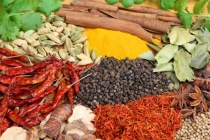
“Madras” curries and curry powders featured a lot as Indian food started to be cooked in the west, with Madras, or Chennai as it is now called, being an important centre in British India. Incidentally, it is on the Coromandel Coast which gave its name to four British naval ships and it was after a visit of one HMS Coromandel to New Zealand in 1820 that the Coromandel Peninsula was given its name.
Nowadays we can still buy Madras curry pastes and cook-in sauces, some of which are very nice but with Indian spices and ingredients so easy to buy I find the real joy is to make everything from scratch. These recipes are from the Madras region of Tamil Nadu.
Garam Masala
1 tbsp cardamom seeds – removed from the seed pods
1 tsp whole cloves
1tsp whole black peppercorns
1 tsp cumin seeds
1 tsp freshly grated nutmeg
1 5cm cinnamon stick – broken up
In a clean coffee grinder or with a mortar and pestle grind all the spices to a powder and store until required in a small air-tight jar in a dark place. (I bought an old manual coffee grinder which I use just for spices)
Vegetable Kurma
½ medium or 1 small aubergine – cut into 2cm sticks
2 carrots – scraped and cut into 2cm sticks
1 potato – peeled and cut into 2cm sticks
100g frozen peas
100g round green beans – cut into 2cm lengths
50g grated fresh coconut – or 25g desiccated coconut that has been soaked in warm water for 1 hour then drained
4 fresh green chillies – remove stems
2 tbsp poppy seeds
1½ tsp salt
4 medium tomatoes – chopped
1½ tbsp thick plain yoghurt
1 tbsp garam masala – see recipe above
1 cup roughly chopped fresh coriander
Put the vegetables in a saucepan with a cup of water. Bring to the boil, cover and cook until the vegetables are tender – about 4 minutes.
Into a blender or food processor put the coconut, chillies, poppy seeds, salt and half a cup of water and reduce to a smooth paste.
When the vegetables are cooked, add the paste, together with another half cup of water. Stir and allow to simmer for 5 minutes then gently stir in the tomatoes, yoghurt and garam masala. Bring to the boil and simmer for a further 3 minutes. Garnish with the coriander and serve with rice or chapattis and Indian pickles by itself or with other dishes.
Serves 4
As the fairy tale princess said, “You have to kiss a lot of frogs before you find a prince.” As with princes, so with cookbooks… I have been very lucky recently though for in the pool of recent issues I have found two. The first is I think quite wonderful, the much-awaited Rick Stein’s India. I am a real lover of Indian food and this book is a must-have. The glorious and easily cookable recipes are written by a man who so clearly loves and understands food and the photos are so good that you can almost taste them. It is one of those rare books where I want to cook every recipe.
The second, on a different subject is similarly excellent. In Save with Jamie, Jamie Oliver continues his crusade to encourage people to cook good food at home. His two previous books have tried to dispel the myth that cooking takes too long and in this one he works on the idea that good food need not be prohibitively expensive with smart shopping, clever cooking and less waste. His style is easy, the recipes are good and his creative use of leftovers is a joy. After roast lamb last week I used what was left for his recipe for Moroccan Lamb Pastillas; I enjoyed them more than the roast. He has recipes for Indian dishes too! Spring is looking really good so far!
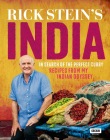
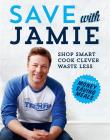
Rick Stein’s India by Rick Stein
Published by BBC Ebury
RRP $65.00 hardback
Save with Jamie by Jamie Oliver
Published by Michael Joseph
RRP $65.00 hardback








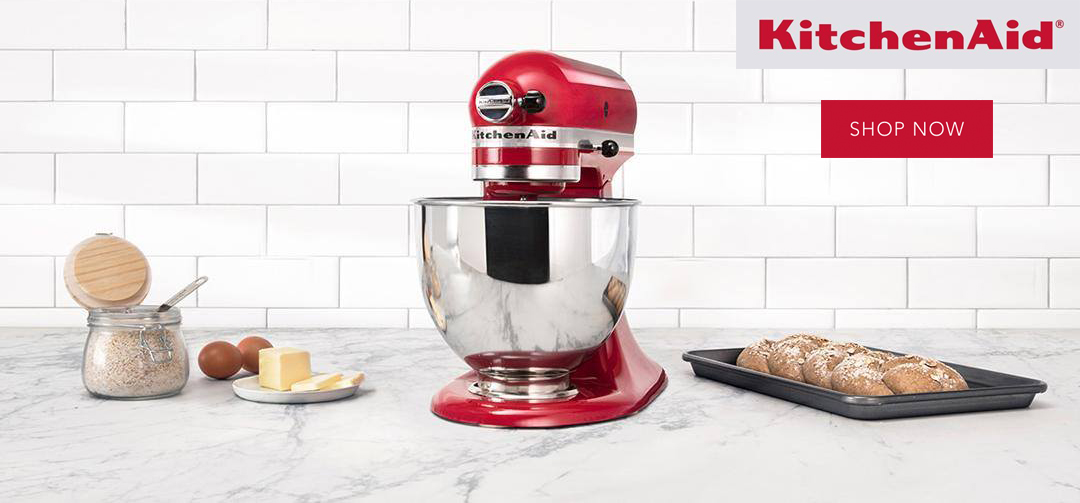
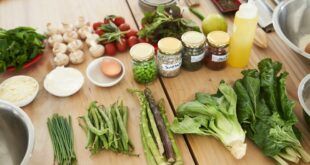
Join the Discussion
Type out your comment here:
You must be logged in to post a comment.